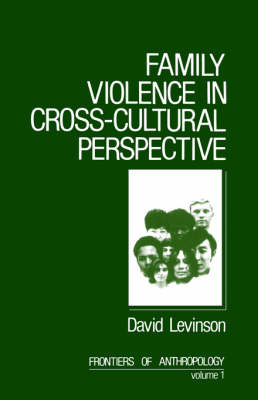Frontiers of Anthropology
1 total work
How prevalent is family violence outside the United States? Can policies and programs designed to prevent family violence in one culture be adapted to other cultures? Does a relationship exist between general violence and family violence in a given society? These are but a few of the questions addressed in this compelling, well-written volume. The author uses ethnographic data culled from 90 different societies to develop a global picture of the incidence, causes, and correlates of family violence. Through the use of both quantitative analysis and ethnographic description, Levinson tests the explanation/power of various current theories against worldwide family violence data. For anyone working in the area of family violence, this volume is a must. "I found the work to be exceptional. . . . I surely will want to adopt it for my graduate course in the Sociology of Deviance." --Bob Regoli, University of Colorado at Boulder "The book would be extremely useful. I know of no comparative work of this type now available. . . . The author writes well and is an accomplished scholar." --Mary Riege Laner, Arizona State University "This book can provide much illumination on world-wide family violence. The accounts given by ethnographers add life to the statistics given. . . . Anyone interested in broadening his or her knowledge of family violence would do well with this book." --Family Violence Bulletin "[Levinson] has made extensive use of the collection of cultural materials from the Human Relations Area files, to examine the question of how common family violence is in different societies, and what factors tend to make such violence more or less common in those societies. . . . He has reached a number of very important conclusions, [which] provide a solid basis for further research. . . . Useful in developing an understanding an of the way in which family violence occurs and may be helpful in programs to prevent the occurrence of such violence." --New Jersey Family Lawyer "Provides thought-provoking material about family violence, which will be of interest to many audiences. . . . This comparative study should help fill a critical gap." --Journal of Marriage and the Family "The author gives examples of societies where family violence is virtually unknown to disprove the view that it is somehow natural and inevitable. Because of this wider perspective on a common problem, this book is worthwhile reading for anyone dealing professionally with couples of families where violence is likely to occur." --Sexual and Marital Therapy "An important addition to the anthropological study of deviance; important to students interested in deviant behavior, family, and gender issues, and the social construction of violence." --NEXUS: The Canadian Journal of Anthropology "Those interested in examining family violence from a broader, cross-cultural perspective that will suggest hypotheses for understanding and preventing family violence at the societal level in our own culture will find Family Violence in Cross-Cultural Perspective to be most interesting reading." --Review and Expositor, Inc.
